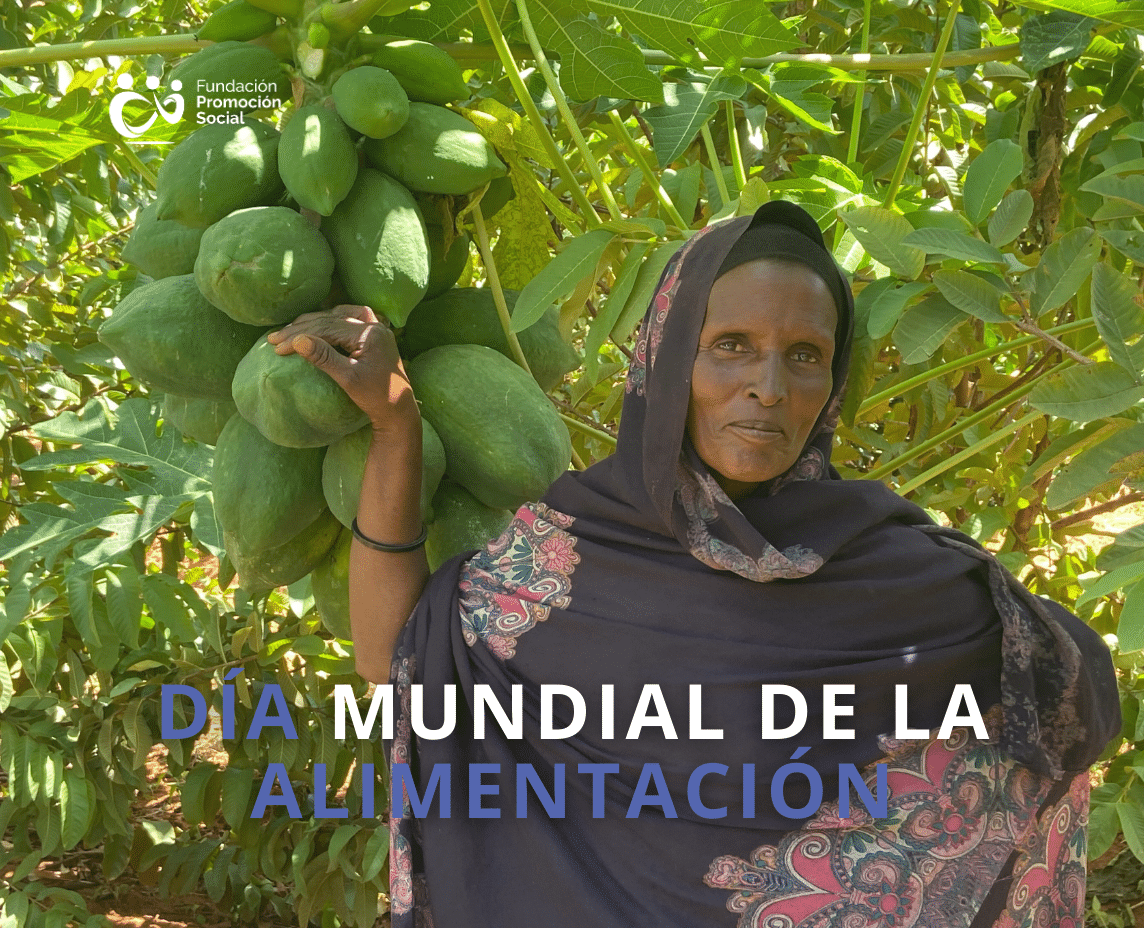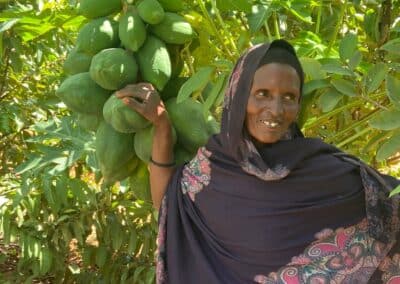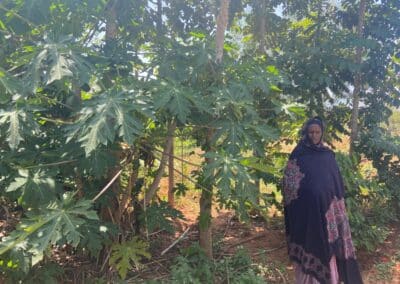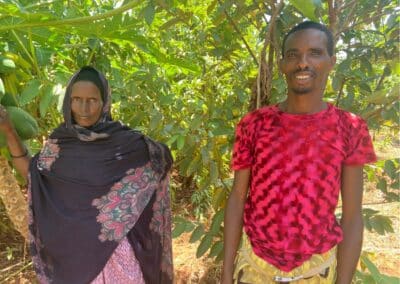Habsa Ahmed is a 65-year-old Somali mother of eight. She is part of an income-generating group that produces vegetables and fruits, which has allowed her to improve and ensure her family’s food security, as well as generate her own income, contribute to the rural development of her community and cope with the effects of climate change. But it has not always been this way.
Before joining this group, Habsa and her family were living in a very difficult situation: “The main problem we had was the lack of access to water, but we also had no seeds to grow due to droughts and production losses. We had no resources to survive. It was a very hard situation.” She also remembers that, although they occasionally received some government aid to feed themselves, nothing was enough. “As a survival mechanism, we sold some of the few heads of cattle we had left to buy food, we also received support from relatives who live in other areas… I even had to send two of my children, aged 17 and 19, to other cities to work as day labourers so that we could guarantee food for our home.”
An opportunity
Everything began to change when Habsa was selected to receive several training courses in income diversification, agriculture and livestock, as well as in issues related to women’s empowerment and equality. All of this within the framework of the agreement that we are implementing in Ethiopia with AECID, in consortium with the NGO Rescate, and in collaboration with our local partners Ethiopian Catholic Church Social and Development Commission (ECC-SDCO) and Horn of Africa Voluntary Youth Committee (HAVOYOCO).
This knowledge served as a basis for her to become part of the group that generates income through the production of fruits and vegetables, and thus, she began to cultivate a plot of land that she and her husband owned and that, until then, they had not used.
Thanks to the irrigation system that was also installed as part of the initiative, Habsa was able to start planting cereals, vegetables, fruit trees, fodder plants for livestock… and many trees. In this sense, she highlights that the training she received has been of great help, as it has allowed her to increase agricultural production, optimize resource management and, above all, guarantee food security for her family. “Last year we earned 200,000 birs (*Ethiopian currency) from the sale of agricultural products, we have never earned so much money before” she exclaims.
World Food Day 2024
Once again, on October 16, we celebrate World Food Day, a date on which we remember that, despite the fact that global food production would be sufficient to supply the entire population, it is estimated that more than 730 million people suffer from hunger in the world. Conflicts, the serious consequences of climate change and the unequal distribution of resources, among other factors, cause this shortage to be especially severe in the most disadvantaged countries.
Thus, from our Foundation we work in Ethiopia and many other countries so that people like Habsa have an opportunity to overcome their initial situation of vulnerability and food insecurity and manage to produce their own food, guaranteeing the nutritional health of their families and communities.








